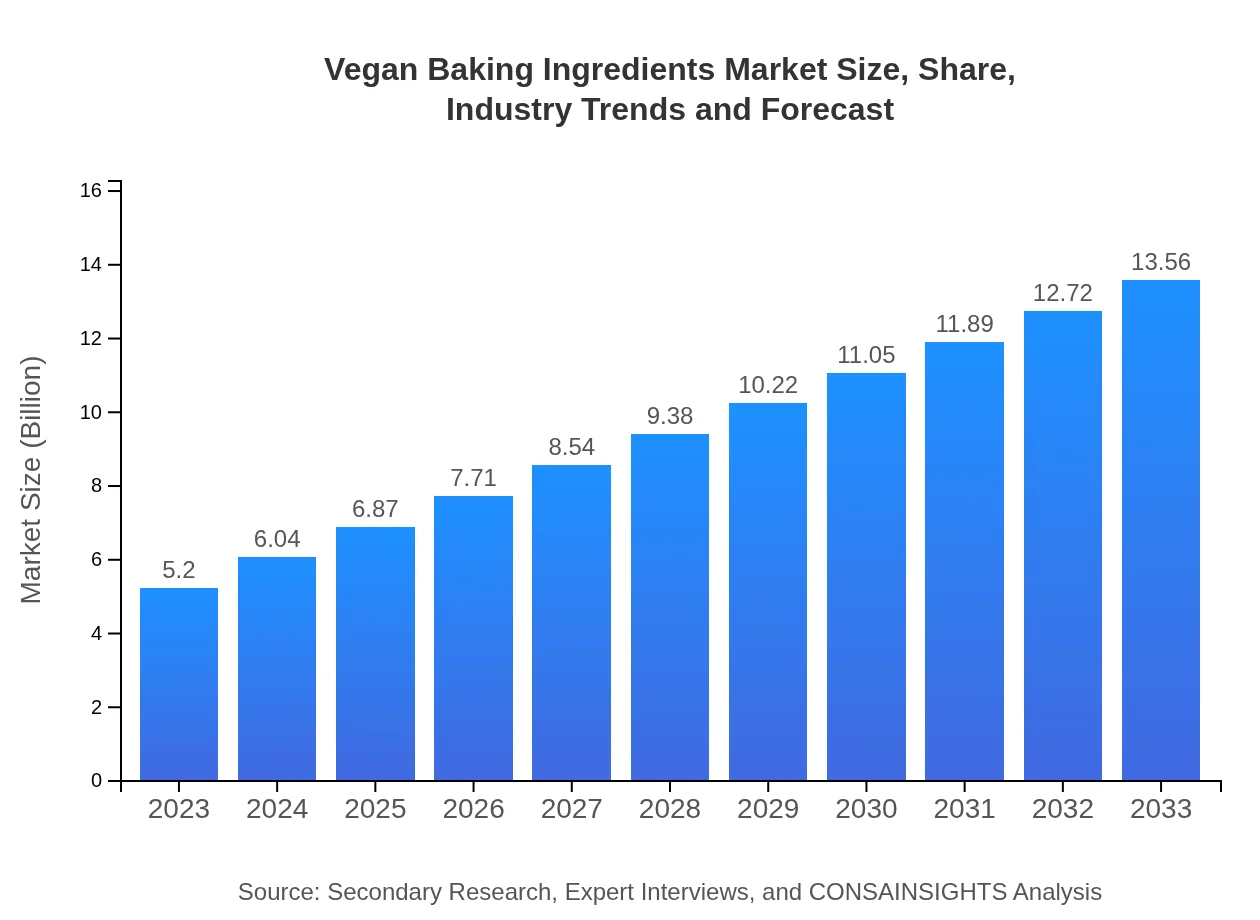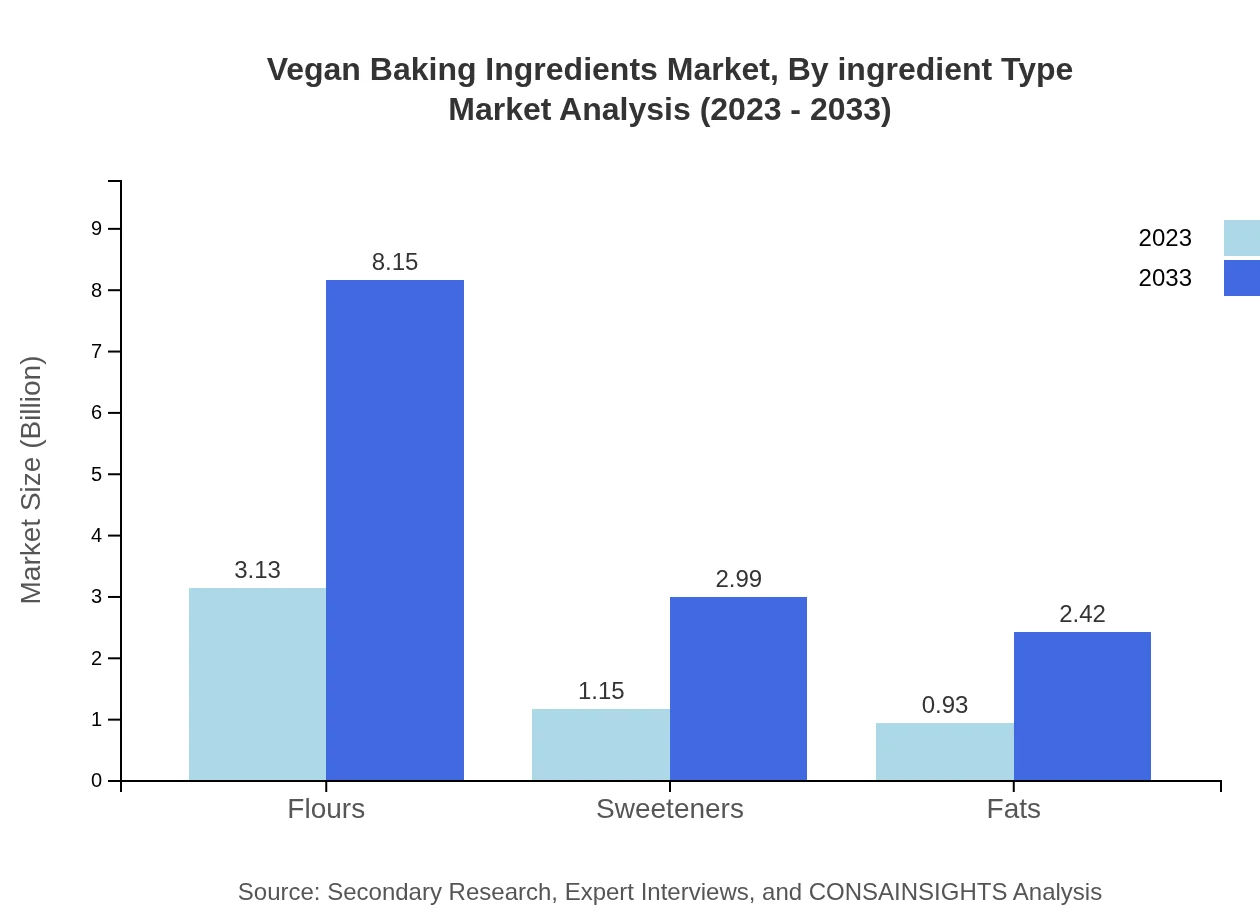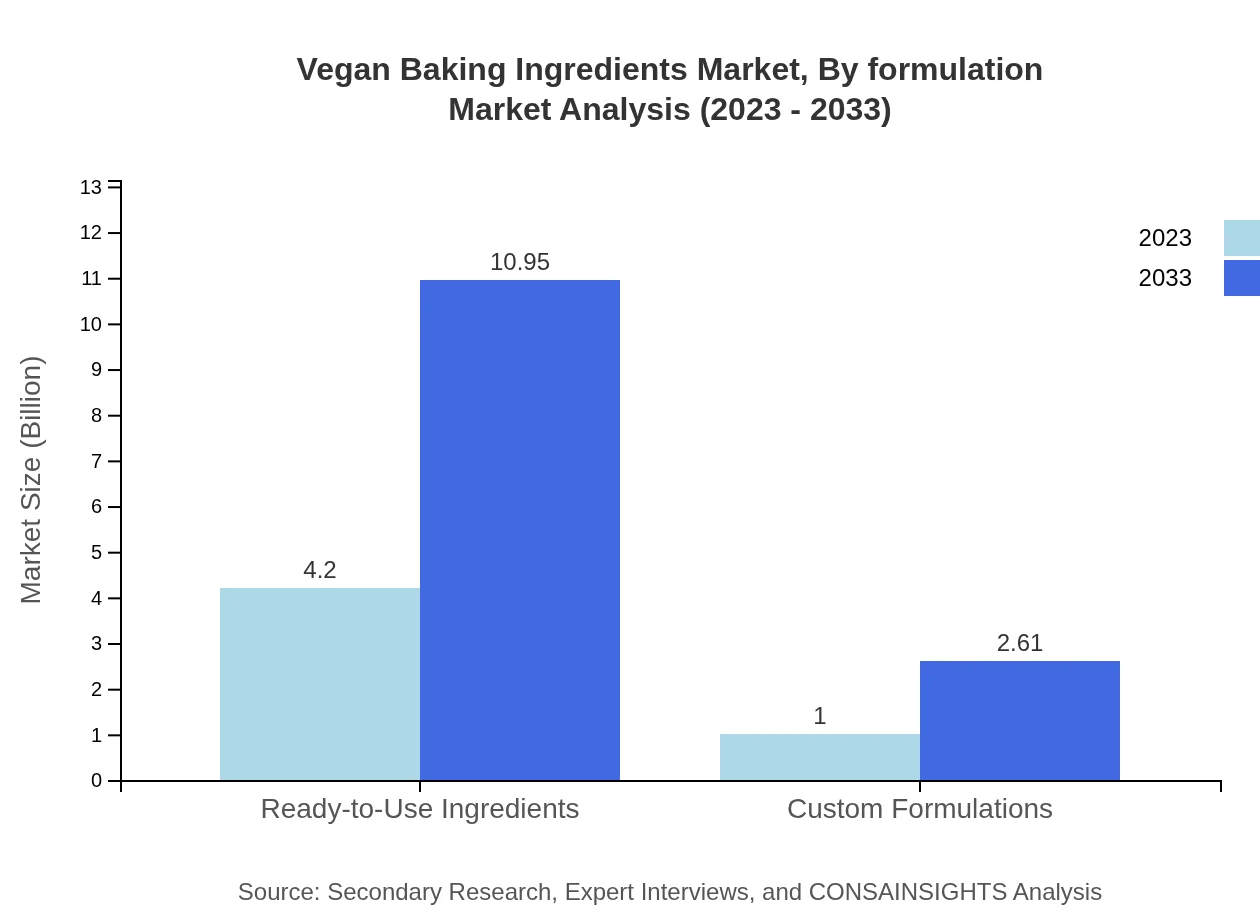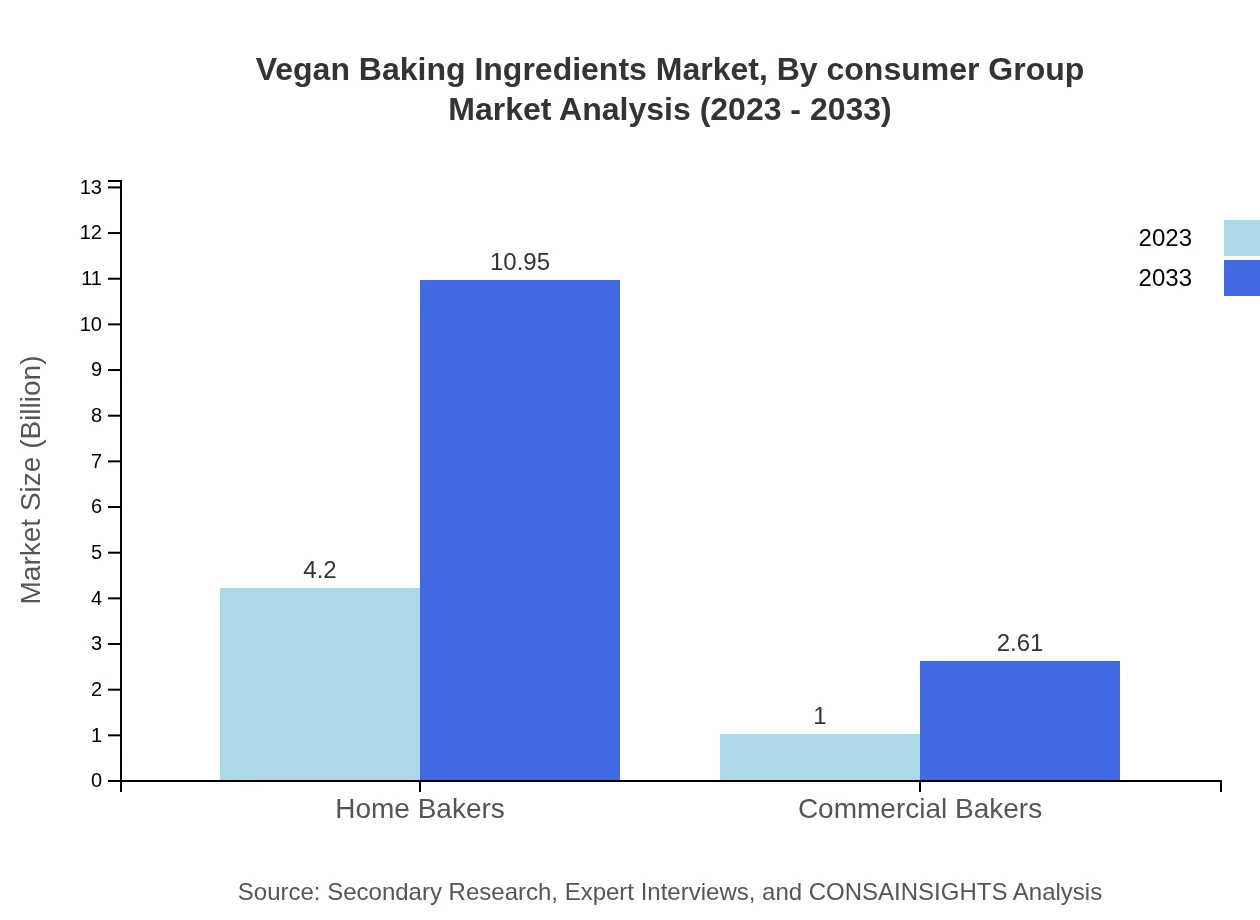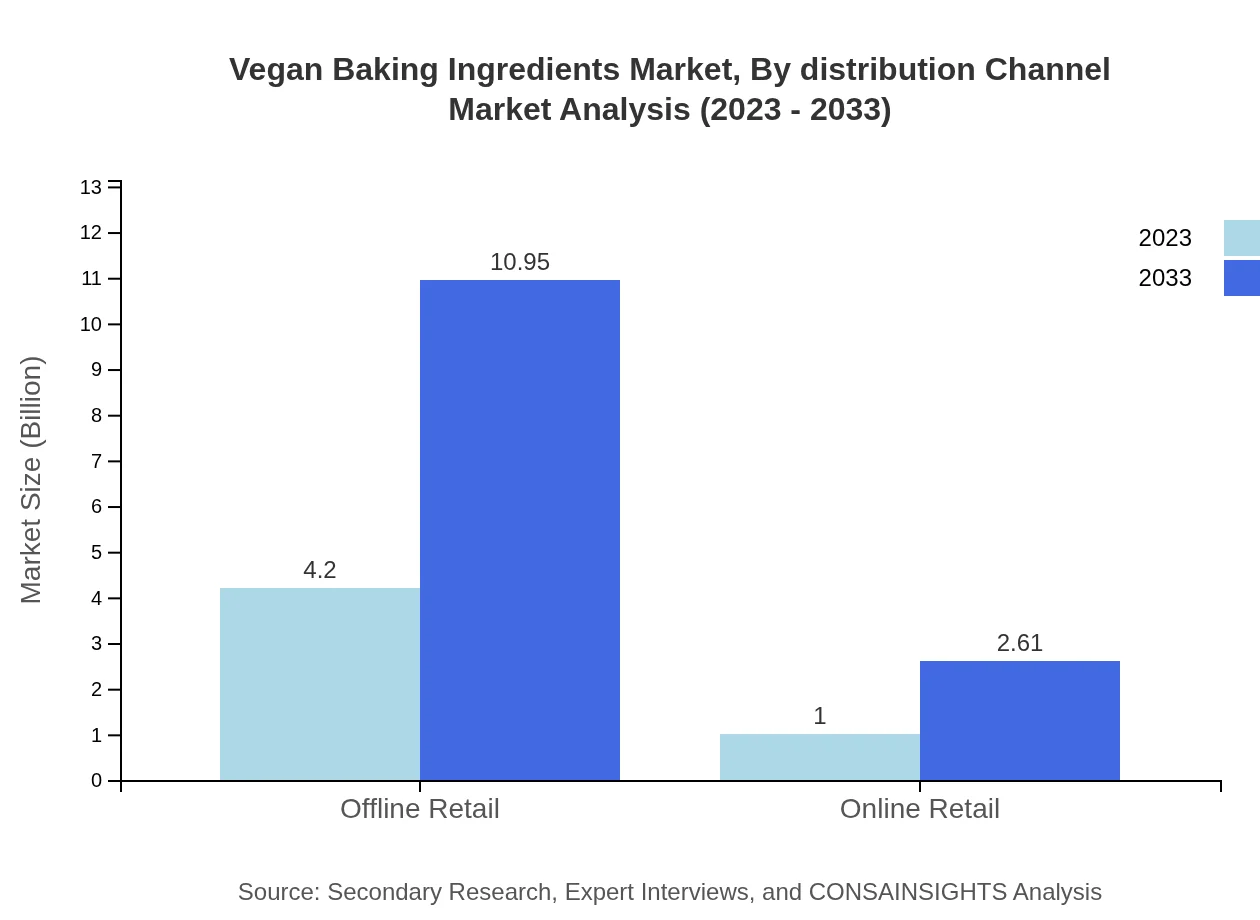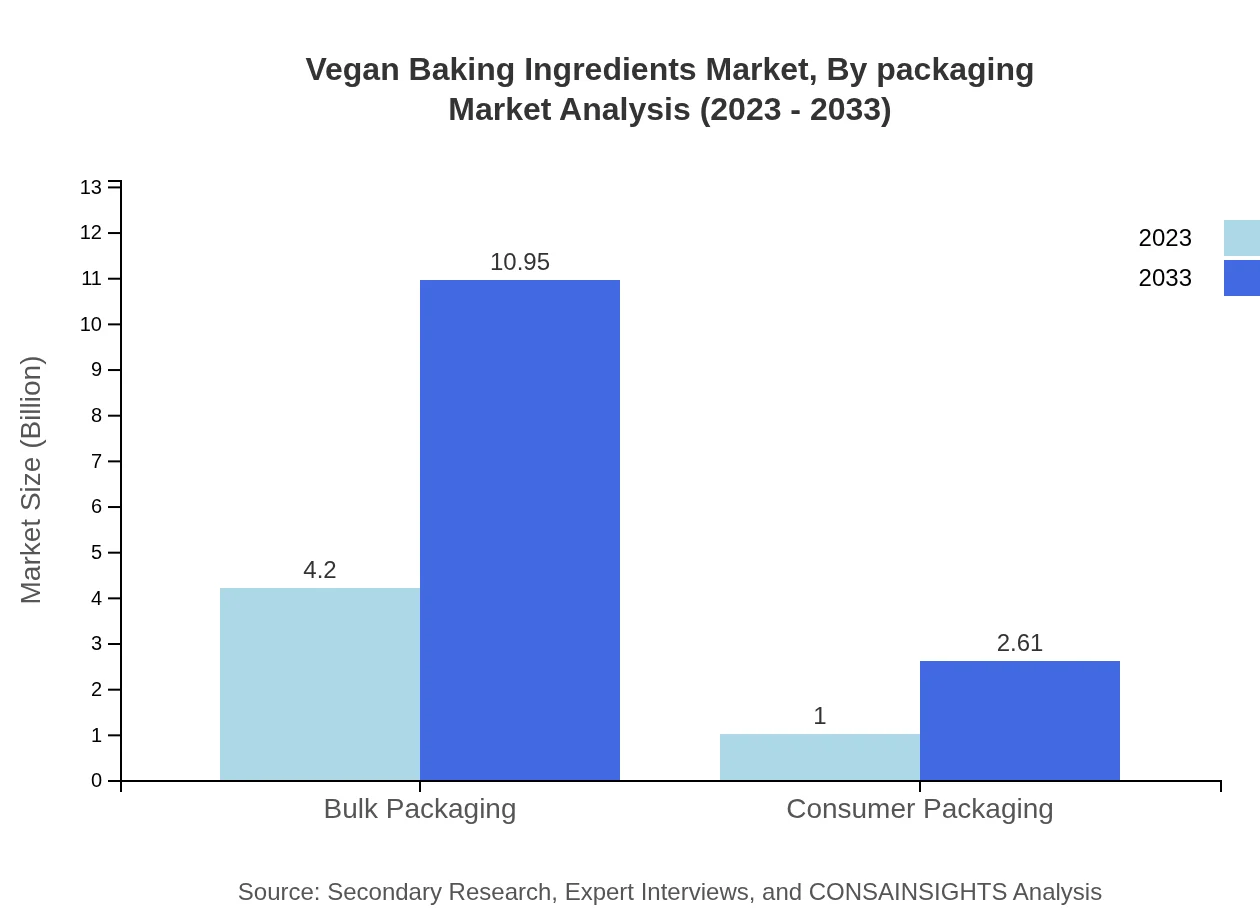Vegan Baking Ingredients Market Report
Published Date: 31 January 2026 | Report Code: vegan-baking-ingredients
Vegan Baking Ingredients Market Size, Share, Industry Trends and Forecast to 2033
This report examines the Vegan Baking Ingredients market, providing insights into its size, growth, trends, and forecasts from 2023 to 2033, alongside segment analyses and regional breakdowns for a comprehensive market overview.
| Metric | Value |
|---|---|
| Study Period | 2023 - 2033 |
| 2023 Market Size | $5.20 Billion |
| CAGR (2023-2033) | 9.7% |
| 2033 Market Size | $13.56 Billion |
| Top Companies | Bob's Red Mill, King Arthur Baking Company, Doves Farm, Pillsbury |
| Last Modified Date | 31 January 2026 |
Vegan Baking Ingredients Market Overview
Customize Vegan Baking Ingredients Market Report market research report
- ✔ Get in-depth analysis of Vegan Baking Ingredients market size, growth, and forecasts.
- ✔ Understand Vegan Baking Ingredients's regional dynamics and industry-specific trends.
- ✔ Identify potential applications, end-user demand, and growth segments in Vegan Baking Ingredients
What is the Market Size & CAGR of Vegan Baking Ingredients market in 2023?
Vegan Baking Ingredients Industry Analysis
Vegan Baking Ingredients Market Segmentation and Scope
Tell us your focus area and get a customized research report.
Vegan Baking Ingredients Market Analysis Report by Region
Europe Vegan Baking Ingredients Market Report:
In Europe, the demand for Vegan Baking Ingredients is robust, projected to grow from $1.53 billion in 2023 to $3.98 billion by 2033. This increase is fueled by stringent regulations regarding sustainability, as well as a strong vegan movement across countries like Germany and the UK.Asia Pacific Vegan Baking Ingredients Market Report:
The Asia Pacific region is projected to grow from approximately $0.91 billion in 2023 to around $2.38 billion by 2033, reflecting a growing interest in vegan diets and an expanding market for plant-based products across countries like India and China. Increased availability of vegan baking products through both offline and online channels is contributing to this growth.North America Vegan Baking Ingredients Market Report:
North America represents one of the largest markets for Vegan Baking Ingredients, with an estimated market size of $1.98 billion in 2023, expanding to $5.17 billion by 2033. The high demand for gluten-free options and increasing health consciousness among consumers are key drivers propelling this market.South America Vegan Baking Ingredients Market Report:
In South America, the market for Vegan Baking Ingredients is expected to expand from $0.28 billion in 2023 to $0.72 billion by 2033. This growth is driven by a rising middle class and shifting dietary patterns towards veganism in countries such as Brazil, Argentina, and Chile.Middle East & Africa Vegan Baking Ingredients Market Report:
The Middle East and Africa are expected to witness market growth from $0.50 billion in 2023 to $1.30 billion by 2033. The rising awareness about health and nutrition, coupled with increasing imports of vegan products, are contributing to the market expansion in this region.Tell us your focus area and get a customized research report.
Vegan Baking Ingredients Market Analysis By Ingredient Type
The segment for flours is the dominant category, expected to grow from $3.13 billion in 2023 to $8.15 billion by 2033. Other important ingredients include sweeteners, with a market size of $1.15 billion in 2023, growing to $2.99 billion, and fats, with an increase from $0.93 billion to $2.42 billion. These ingredient types represent crucial components for both home and commercial baking applications.
Vegan Baking Ingredients Market Analysis By Formulation
Bulk packaging holds a significant market share, expected to grow substantially from $4.20 billion in 2023 to $10.95 billion by 2033. Ready-to-use ingredients are also prominent, with similar growth patterns, while consumer packaging is growing steadily, expected to reach $2.61 billion. This indicates a trend towards convenience in purchasing behaviors among consumers.
Vegan Baking Ingredients Market Analysis By Consumer Group
The market is shared predominantly between home bakers and commercial bakers, with home bakers holding 80.75% of the market share. This segment is expected to grow from $4.20 billion in 2023 to $10.95 billion by 2033, while commercial bakers are projected to see growth from $1.00 billion to $2.61 billion.
Vegan Baking Ingredients Market Analysis By Distribution Channel
Offline retail remains the primary distribution channel, capturing a market share of 80.75% in 2023, while online retail is gaining traction with significant growth anticipated, from $1.00 billion to $2.61 billion by 2033. This shift demonstrates changing consumer buying patterns, influenced by the acceleration of e-commerce.
Vegan Baking Ingredients Market Analysis By Packaging
The packaging segment shows strong growth potential, with innovations in eco-friendly packaging gaining popularity. Bulk packaging is expected to maintain a substantial market share alongside the rise of consumer-friendly options that cater to home bakers' preferences, reflecting the industry's adaptability to consumer needs.
Vegan Baking Ingredients Market Trends and Future Forecast
Tell us your focus area and get a customized research report.
Global Market Leaders and Top Companies in Vegan Baking Ingredients Industry
Bob's Red Mill:
A leading provider of whole grain and gluten-free ingredients, Bob's Red Mill offers a wide range of vegan baking products, emphasizing quality and sustainability.King Arthur Baking Company:
Known for its premium flour and baking products, King Arthur Baking Company is dedicated to offering reliable vegan baking ingredients and recipes, supporting the home baker community.Doves Farm:
Doves Farm specializes in organic and gluten-free vegan baking ingredients, catering to health-conscious bakers with a strong commitment to quality.Pillsbury:
A household name, Pillsbury has expanded its product lines to include vegan baking options, targeting a diverse range of consumers and baking preferences.We're grateful to work with incredible clients.









FAQs
What is the market size of vegan baking ingredients?
The vegan baking ingredients market is projected to reach a size of $5.2 billion by 2023, with a strong compound annual growth rate (CAGR) of 9.7% expected over the next decade.
What are the key market players or companies in the vegan baking ingredients industry?
Key players in the vegan baking ingredients industry include established brands and emerging companies that focus on plant-based ingredients, disrupting traditional baking markets.
What are the primary factors driving the growth in the vegan baking ingredients industry?
The growth of the vegan baking ingredients market is driven by rising health consciousness, increasing veganism, and a growing demand for sustainable and natural ingredient options among consumers.
Which region is the fastest Growing in the vegan baking ingredients market?
The fastest-growing region in the vegan baking ingredients market is North America, where the market is expected to expand from $1.98 billion in 2023 to $5.17 billion by 2033.
Does ConsaInsights provide customized market report data for the vegan baking ingredients industry?
Yes, ConsaInsights offers customized market report data tailored to specific client needs in the vegan baking ingredients industry, accommodating unique business requirements.
What deliverables can I expect from this vegan baking ingredients market research project?
Deliverables from the vegan baking ingredients market research project include comprehensive reports, market analysis, trend predictions, regional overviews, and segmentation insights.
What are the market trends of vegan baking ingredients?
Current market trends in vegan baking ingredients include increased product innovation, a rise in e-commerce sales, and a shift towards eco-friendly packaging in the sector.

